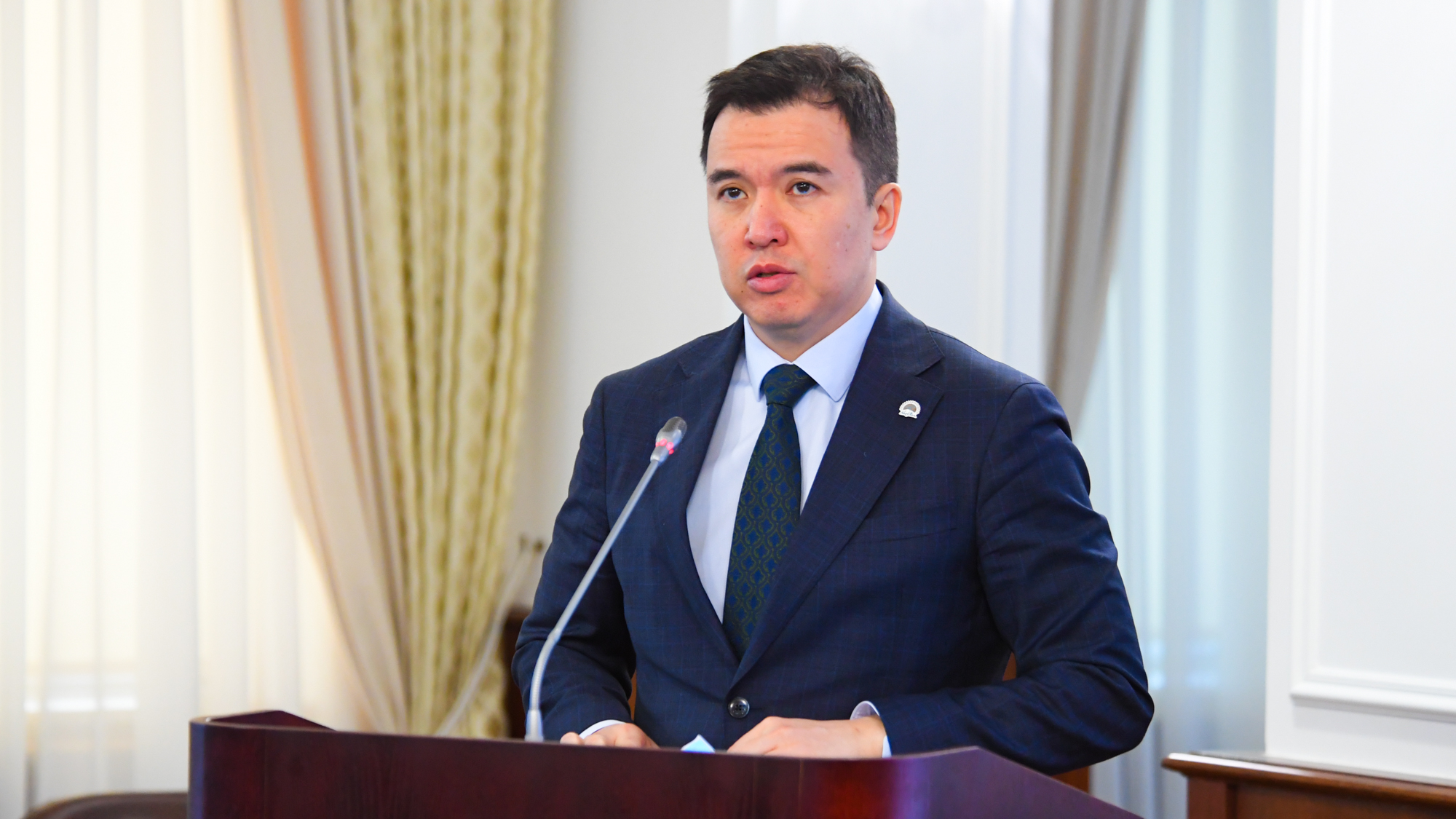02 September 2020, 11:54

At a government session chaired by Prime Minister Askar Mamin, measures to implement the Address of the Head of State of Sep. 1, 2020, were considered. Minister of National Economy Ruslan Dalenov made a presentation.
Within the framework of the Address to the people of the country "Kazakhstan in a New Reality: Time for Action,’’ the Head of State set specific tasks to ensure sustainable economic growth, improve the quality and standard of living.
Ministry of National Economy will carry out work in five main areas:
1. Development of entrepreneurship.
2. Improving fiscal policy.
3. Promotion of investment.
4. Balanced regional development.
5. Public administration.
Development of Entrepreneurship
As Dalenov noted, in order to provide additional assistance to small and medium-sized businesses, interest rates on existing loans to SMEs will be subsidized with an increase of 6% per annum for the borrower. The subsidy will cover a period of 12 months from the moment of the announcement of the state of emergency. This measure will be implemented as part of the new direction of the state program Business Roadmap-2025.
“A set of measures will be taken to further improve the business climate. This includes the automation of the risk management system, revision of all regulatory requirements and the development of proposals to reduce them by creating an appropriate commission. Measures will be taken to introduce the institution of regulatory appeal by introducing appropriate changes to the Entrepreneurial Code,” Ruslan Dalenov informed.
The implementation of financial and non-financial state support measures will also continue. In general, this will contribute to the achievement of the tasks set to increase the share of SMEs in GDP to 35% and the number of people employed in SMEs to 4 million people by 2025.
Improving fiscal policy
According to the Ministry of National Economy of the Republic of Kazakhstan, today the Tax Code provides for 12 types of taxes, 48 subtypes of taxes, 10 fees and 6 fees. Accordingly, work will be carried out to minimize the number of taxes and payments.
The issue of applying the right to pay retail turnover tax on an alternative basis for the most affected sectors of the economy will be explored. The possibilities of differentiating tax rates will also be studied. A set of key budget coefficients will be developed, an assessment of the effectiveness and sustainability of budgetary policy will be introduced.
As part of the implementation of the "extended budget", a Comprehensive Assessment of Public Finance will be introduced by including extra-budgetary funds in the consolidated budget.
Investment stimulation
According to Dalenov, Strategic Investment Agreements will be introduced in order to ensure the stability of legislative conditions for the entire period of investment projects implementation.
For this, amendments will be provided to the Entrepreneurial and Tax Codes, as well as to the Law on Special Economic Zones. A pool of strategic investment projects will be formed. All projects will be considered by the Coordination Council for attracting investments.
To improve the efficiency of project implementation, it is planned to provide an individual approach to each major investor.
In addition, in the process of implementing investment projects, the potential of the AIFC will be actively used, providing modern infrastructure, English law and preferential tax and migration regime.
Balanced regional development
New approaches to the country's regional development will be developed, including measures to reveal the competitive advantages of each specific region. For this, appropriate changes will be made to the Forecast Scheme of Spatial Development until 2030.
The active implementation of the "Aul - El Besigі" project, which is aimed at solving urgent infrastructure issues in the villages, will continue.
As part of improving local self-government, the financial capabilities of the budgets of rural districts will be expanded (transfer of 4 types of taxes and payments).
A new Concept for the Development of Local Self-Governance will be developed. Within the framework of this Concept, proposals will be developed for the introduction of direct elections of rural akims, the expansion of property rights of local government and the powers of maslikhats.
Public administration
As part of the reduction of the state apparatus and workers in the quasi-public sector, in 2020 their number will be reduced by 10%, and next year - by another 15%.
For supporting entrepreneurship, the charging of rent for small and medium-sized businesses on real estate objects owned by the state and the quasi-public sector will be suspended until the end of the year.
For further denationalization of the economy, a new privatization plan will be adopted until 2025.
Stay updated about the events of the Prime Minister and the Government of Kazakhstan - subscribe to the official Telegram channel
Subscribe